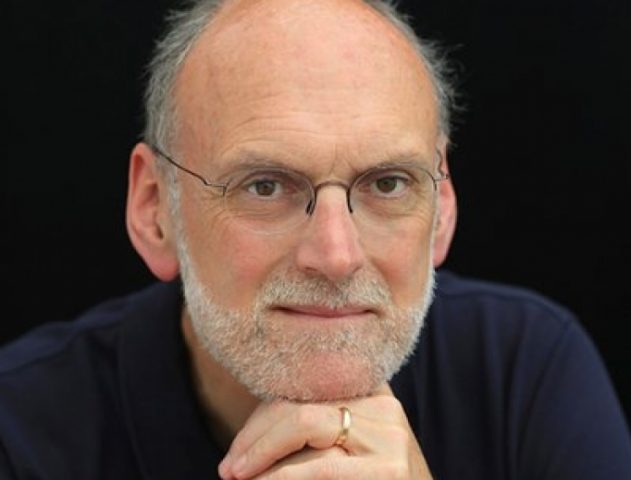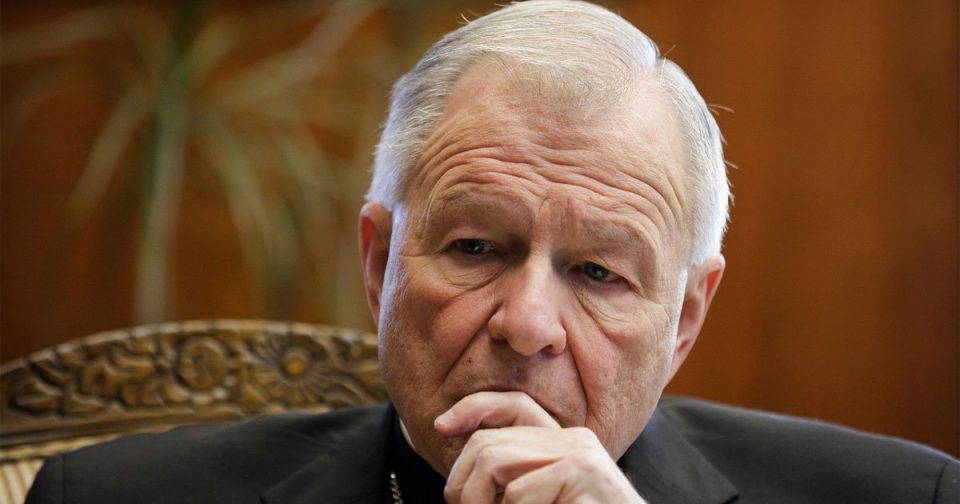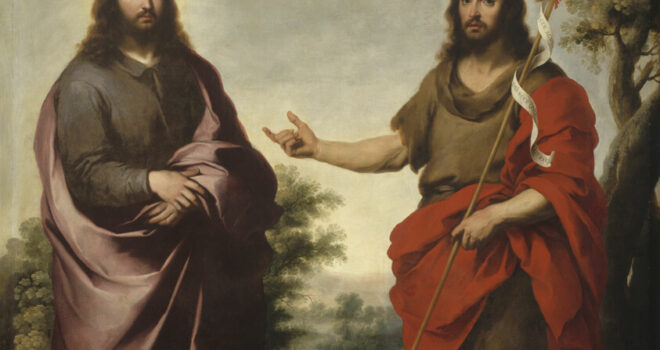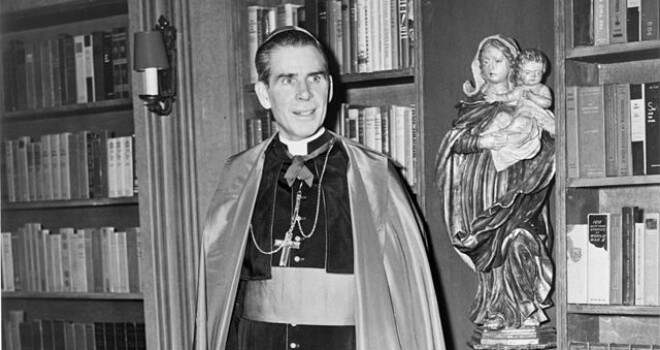Pope Francis has appointed 50 academics, including Nigel Biggar, an Anglican professor of moral and pastoral theology at the University of Oxford, who has in the past supported legalized abortion up to 18 weeks and has expressed qualified support for euthanasia.
However, some choices are causing considerable concern, particularly that of Nigel Biggar, an Anglican professor of moral and pastoral theology at the University of Oxford, who has in the past supported legalized abortion up to 18 weeks and has expressed qualified support for euthanasia.
The Pope made the appointment of 45 ordinary members and five honorary members on May 16; the Vatican made the choices public today.
The pontifical academy, founded by Pope St. John Paul II and professor Jerome Lejeune in 1994, is dedicated to promoting the Church’s consistent life ethic and carries out research on bioethics and Catholic moral theology.
Over the years it has promoted and developed the Church’s teaching on various areas of medical ethics, including procreation, in vitro fertilization, gene therapy, euthanasia and abortion.
The new appointments come after new statutes were implemented in November that summarily ended the terms of 139 members of the academy at the end of December, pending the academy’s restructuring in line with Pope Francis’ reform of the Roman Curia.
Of the new appointees, just 28 of the previous 139 members have been reappointed. This means that 23 are new members, and 112 academics, including some founding members, most of whom were previously chosen by Popes St. John Paul II and Benedict XVI, are no longer part of the institution.
Five Americans are among the new members, including Carl Anderson, Supreme Knight of the Knights of Columbus, who has been reappointed.
In a statement, Anderson said he was “honored” by the choice and quoted words of Pope Francis from his apostolic exhortation Evangelii Gaudium (The Joy of the Gospel), in which he wrote that the “defense of unborn life is closely linked to the defense of each and every other human right.”
Anderson said he looks forward to working with Pope Francis and the academy “in supporting an authentic human ecology and building a culture of life based on a proper understanding of the right to life and the dignity of each person.”
Today’s announcement comes as past members have been voicing concern about the direction of the academy, especially after a requirement for new members to sign a statement promising to defend life in conformity with the Church’s magisterium was removed, and questions over the suitability of Archbishop Paglia to run the institution.
The archbishop tried to answer those concerns in a lengthy interview with the Register published last week.
Various Perspectives
In his June 13 statement, the Italian prelate said that Pope Francis had chosen academics of the “highest professional standing” from 27 countries and that they are “outstanding in diverse fields of human knowledge.”
He added that, among them, are “a number of non-Catholics, either belonging to other religions and nonbelievers,” which was a sign that the “protection and promotion of human life knows no divisions and can be assured only through common endeavor.”
One who falls into that category is professor Shinya Yamanaka, a Japanese Nobel laureate who in 2006 discovered a way of reprogramming adult skin cells to act as an alternative to embryonic stem cells, thus circumventing an approach in which embryos would be destroyed.
It is not known whether Yamanaka is a Christian and where he stands, for example, on contraception, but former founding academy member Christine Vollmer praised his breakthrough in comments to the Register, saying it helped the academy in its position on embryonic stem-cell research.
Yamanaka said he decided to conduct the research when he caught a glimpse of an embryo at a friend’s fertility clinic. “I suddenly realized there was such a small difference between it and my daughters,” he said.
It is also not clear how much two other new members, Mohamed Haddad, a Muslim professor of Arab civilization and comparative religion at the University of Carthage in Tunisia, and Avraham Steinberg, a Jewish director of the Medical Ethics Unit of the Shaare Zedek Medical Center in Jerusalem, share the Church’s perspectives on life issues.
Other new appointments include Anne-Marie Pelletier, professor of sacred Scripture, Bible and liturgy at the École Cathédrale in Paris, whom Pope Francis chose to write this year’s Way of the Cross meditations at the Colosseum — making her the first wife, mother and grandmother to do so.
A supporter of some remarried divorcees receiving holy Communion, Pelletier attracted attention in 2015 by taking part in a “shadow synod” that, among other topics, looked at ways to better welcome those living in stable same-sex unions.
Biggar’s Remarks
But of greater concern is Biggar, an Anglican clergyman and moral theologian, who is the only U.K.-based member.
According to The Catholic Herald, Biggar said in 2011 it is “not clear that a human fetus is the same kind of thing as an adult or a mature human being, and therefore deserves quite the same treatment.”
“It then becomes a question of where we draw the line, and there is no absolutely cogent reason for drawing it in one place over another,” he said.
Said Biggar, “I would be inclined to draw the line for abortion at 18 weeks after conception, which is roughly about the earliest time when there is some evidence of brain activity, and therefore of consciousness.”
Vollmer called his appointment “scandalous” while Professor Luke Gormally, a British former academy member, told the Register the appointment was “shocking.” He also claimed that Biggar has no moral objection in principle to euthanizing some people, based on what he wrote in his 2004 book Aiming to Kill: The Ethics of Suicide and Euthanasia, although he opposes the legalization of euthanasia largely on pragmatic grounds.
In a September 2006 review of the book for the Dominican periodical New Blackfriars, author David Jones wrote: “Biggar finds the distinction of ‘biological’ human life and ‘biographical’ human life both logically defensible and morally relevant. If someone’s brain is irreparably damaged so that he or she cannot think, then according to Biggar we should conclude that he or she is no longer a human ‘person’ and no longer part of the human community. Biggar even describes such individuals as ‘irretrievably inaccessible to human care’ so that it means nothing to protect them from being killed nor therefore (and this is my deduction) to visit, clothe or feed them.”
Previous members had strongly advocated that new members should be clearly in favor of life.
Another former academy member, Dr. Thomas Ward, told the Register June 6 they should be “absolutists with proven track records of active defense of all innocent human life” and be “quite specific” in their support of Humanae Vitae (The Regulation of Birth).
Gormally regretted that two “outstanding” British Catholic candidates had been overlooked: professors David Albert Jones, director of the Anscombe Bioethics Centre in Oxford, and Neil Scolding, Burden professor of Clinical Neuroscience at the University of Bristol, who was until last year a corresponding member of the academy.
Probably on grounds of age, Cardinal Carlo Caffarra, archbishop emeritus of Bologna, becomes an honorary member of the academy, meaning he will no longer have influence on the work of the academy.
Praise for Other Picks
However, two prelates reappointed as ordinary members — Cardinal Willem Eijk, archbishop of Utrecht, Netherlands, and Archbishop Anthony Fisher of Sydney, Australia — are both “excellent bioethicists,” according to Gormally.
He also welcomed the reappointment of John Keown, professor of Christian ethics at Georgetown University, saying he has “proved to be an outstanding legal scholar in the defense of human life.”
Vollmer pinpointed 12 out of the 45 ordinary members whom she knew to be particularly, or somewhat, solid when it comes to life issues, but for those she did not know, naturally she wasn’t able to say.
Also of concern to her was a lack of philosophers on the list, no specialist in the important role of communications, and an absence of heads of movements such as the American Life League, Heartbeat, VITA, Human Life International or the Society for the Protection of Unborn Children (SPUC).
This is a “great deficiency,” she said, as is the absence of “important people who are knowledgeable [with] and fighting pornography.”
“They don’t seem to understand the realities of the threats to life,” Vollmer said, adding that someone such as U.S. Rep. Chris Smith, R-New Jersey, who has for 40 years “been the initiator of every good pro-life law” in the United States, would be a good choice. “I really don’t know how they see the whole problem,” she said.
Archbishop Paglia insisted in his statement that the new ordinary members represent the academy’s “passion for human life.”
The academy also said its governing council will appoint corresponding members and young researchers (a new membership category created in the statutes promulgated by Pope Francis in 2016), and thus “fill out” the membership of the institution.
Pope Francis is due to open the institution’s ordinary assembly Oct. 4-6 in the Vatican, when he will “constitute the official launch of the renewed academy,” the June 13 statement advised.
Edward Pentin is the Register’s Rome correspondent.






